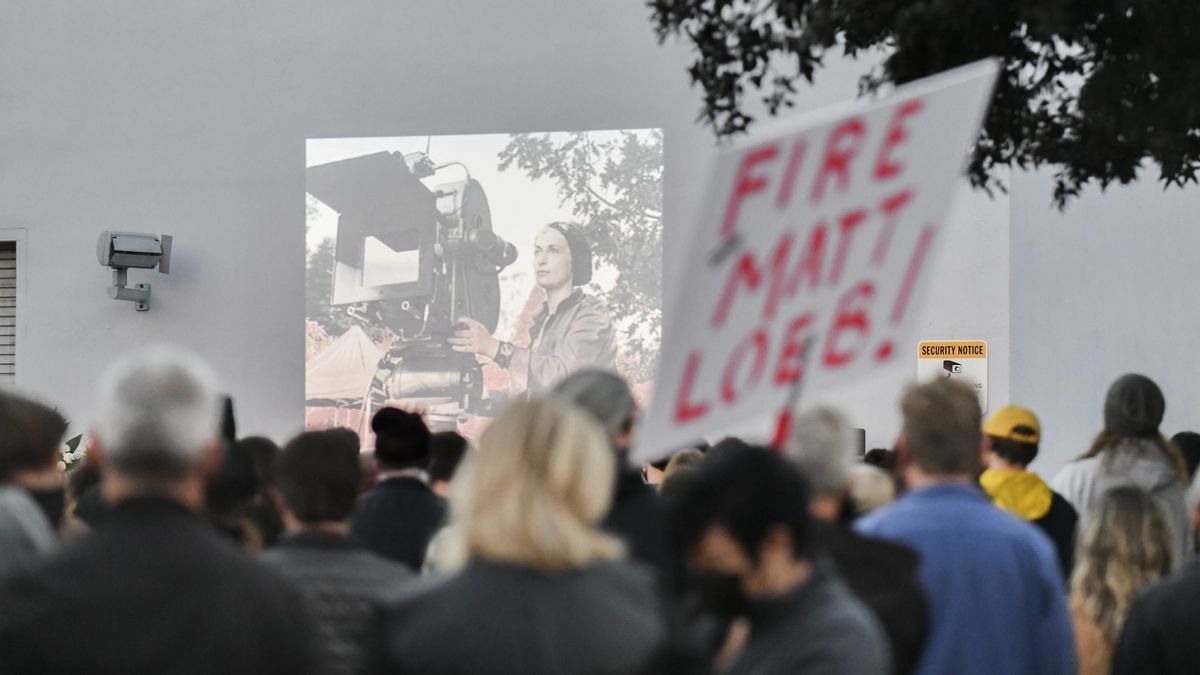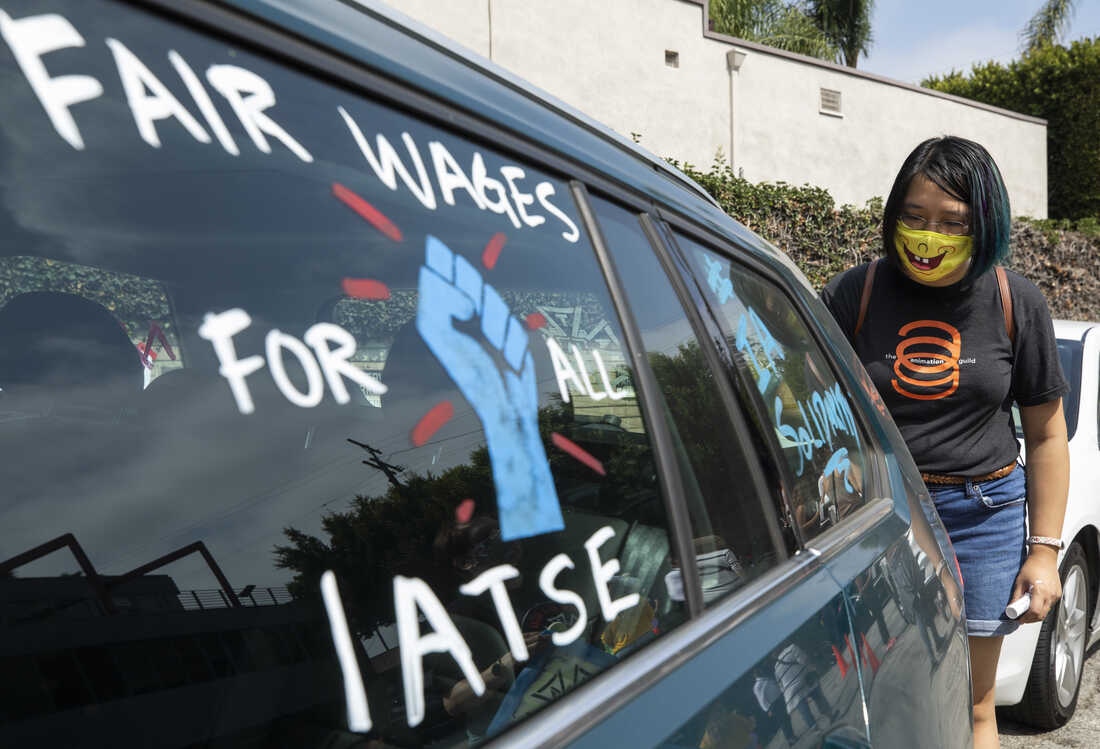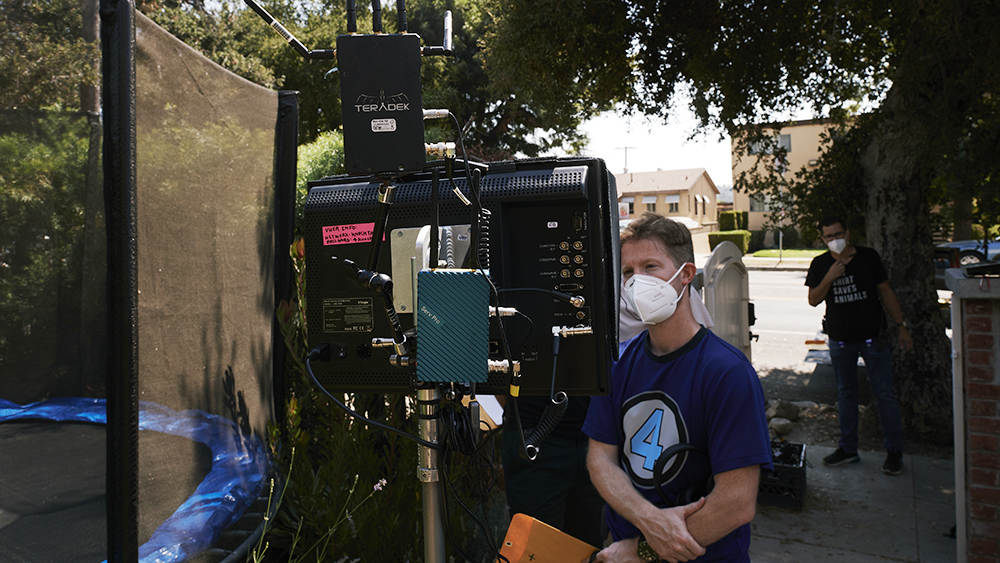Why should film fans care about IATSE labor activism?

A few minutes every morning is all you need.
Stay up to date on the world's Headlines and Human Stories. It's fun, it's factual, it's fluff-free.
The trend of labor action has been a significant point of contention in workplace culture in the United States and worldwide. This is especially as lives have changed during the COVID-19 pandemic, with what’s currently happening being dubbed the “Great Resignation.”
Back in April of 2021, “the number of workers who quit their job in a single month broke an all-time U.S. record.” Then, in July, that record was topped once again. In August, it happened again. People are quitting their jobs across pretty much every industry. And this American movement has influenced similar events internationally.
There are many factors determining why workers have shifted toward unrest recently, warranting labor action in many cases. Poor wages, poor working hours and conditions, plus the major catalyst of COVID-19, have all contributed to a shift in working culture in the US. However, the labor shortage isn’t the only notable issue. There have also been strikes nationwide regarding major industries and companies, like the 11-week strike at The Kellogg Company, or just Kellogg, and a series of unionization efforts among Amazon.com Inc. workers.
Another noteworthy example of labor organizing and negotiation is what The Hollywood Reporter has called the “Hollywood Labor Rebellion,” spearheaded by The International Alliance of Theatrical Stage Employees, Moving Picture Technicians, Artists and Allied Crafts of the United States, Its Territories and Canada (IATSE).
With all of the evolution in the entertainment world – from advances in streaming to consolidation and the pandemic – the film, TV and theater industries have experienced a lot of turbulence and changes over the past two years.
As the pandemic rages on, it’s “reframed expectations about worker quality of life and broadened labor’s primary focus beyond wage bumps,” explained The Hollywood Reporter based on an interview with national business agent Carl Mulert.
In October, an industrywide decision to strike was almost fully realized but was quickly averted before the strike deadline. The new contract with the Alliance of Motion Picture and Television Producers (AMPTP) includes “reasonable rest periods; meal breaks; a living wage for those on the bottom of the pay scale; and significant increases in compensation to be paid by new-media companies.”
However, this near-strike isn’t the only piece of labor activism recently that the IATSE has seen. Talks over a new Netflix agreement, new contracts with broadcast news outlets and with digital outlets have been ongoing over the latter half of 2021.
But what does any of this mean for the media industry at large? And why should moviegoers and film fans care? TMS spoke with a former worker in the entertainment industry (who chose to remain anonymous for career-related reasons) to pick their brain about labor action and what it means for entertainment.
Current IATSE labor activism and the COVID-19 pandemic

“At the beginning of the pandemic, the entire film and television industry had to cease production for months,” the source explained. “Once productions picked up again in the latter half of 2020, they had to operate under strict COVID guidelines. One of these new guidelines was shorter hours. Working days could not go over 8-10 hours to limit the spread of the virus.
“Once a majority of the population got vaccinated, and cases decreased, productions returned to their normal hours. I think a major cause for the most recent labor movement within the media industry is because crew members realized that productions could schedule shorter days, but they just don’t want to. Producers do not see crew members as people. They see them as bodies.
“With a never-ending influx of media being released on streaming services, producers will cut corners however they can to save money and push out as much content as possible in the shortest amount of time. They’d rather schedule a month of 15+ hour workdays, versus two months of 8-hour workdays. Once COVID restrictions became more relaxed and workdays became longer again, crew members realized the industry doesn’t have to be this way.”
With the way that COVID has allowed for more flexibility and rest periods for workers, it seems that those who work in the entertainment industry were unaware of what they were missing until these safety measures were implemented. To the layman, though, these measures may seem minimal, at best; it is widely accepted in the US that a full-time job should range from 35-50 hours a week, with 40 hours being the norm.
For entertainment workers, however, that norm never really existed before the pandemic. So, while people in most industries can work full-time with an 8-hour workday, and then come home to relax by watching a movie or a TV show, the way that these same pieces of entertainment are produced is unusual by most standards.
Broader issues in the entertainment industry

The source also mentioned other issues which affect the people responsible for creating our favorite media. “Drug abuse and alcohol abuse are major issues within this industry,” they explain. “Days are long and exhausting, many workers turn to stimulants like cocaine to get them through the day.”
According to a Substance Abuse and Mental Health Services Administration report in 2015, “13.7% of workers reported past month illicit drug use compared to 8.6% of all surveyed workers (2nd highest total of all listed industries).”
Another issue that our source mentions is physical safety within the industry. “A serious issue within this industry is the normalization of death,” they explain. “The recent Alec Baldwin incident is one instance of many where producers cut corners on set safety, and it cost someone their life. In 2014, camera assistant Sarah Jones lost her life on set because producers ignored safety protocols and shot a scene on a live train track with improper permits.
“I worked on a set where a crew member died from an exhaustion-induced heart attack […]. The production continued as normal the next day with little acknowledgment of the death. […] I have fallen asleep at the wheel twice from driving home after a long workday, but thankfully I was fine. I know a PA who fell asleep at the wheel, totaled his car and had to go to the hospital for bad injuries. I left the industry partly because I didn’t want to put my job before my safety and my own life.”
The physical safety of those on-screen has been subject to much media attention, particularly with the death of actor Paul Walker in 2014, which occurred due to a vehicle collision while filming “Furious 7.” Since the death of cinematographer Halyna Hutchins and the injury of director Joel Souza on the set of Alec Baldwin’s movie “Rust” earlier this year, questions of safety protocol continue to arise.
And, in fact, prior to that incident, union film crew members had walked off the set in protest of the working conditions, including safety concerns as well as long hours and other issues. They were replaced with workers not affiliated with the IATSE. To make film sets safer for both on-screen and off-screen workers, corners being cut is one of the top issues when considering how to improve standards.
With the trend toward labor activism continuing in major industries across the board and internationally, perhaps we’ve entered a new age of labor rights. Certain industries which have gone relatively unchecked by government protocol are now undergoing internal revolutions at the hands of their labor forces.
The entertainment industry is just one of the outfits being affected right now. And support from outside of the frontlines of labor action is also necessary in affecting change. For instance, during the Kellogg’s strike, an accompanying boycott of Kellogg’s products took place by consumers. US President Joe Biden also expressed support of the striking workers.
Have a tip or story? Get in touch with our reporters at tips@themilsource.com




Comments ()